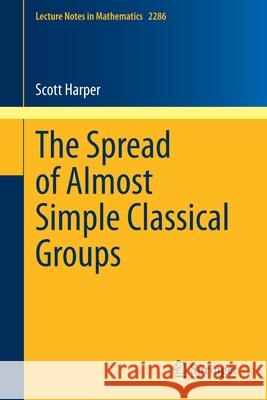The Spread of Almost Simple Classical Groups » książka
topmenu
The Spread of Almost Simple Classical Groups
ISBN-13: 9783030740993 / Angielski / Miękka / 2021 / 154 str.
Kategorie:
Kategorie BISAC:
Wydawca:
Springer
Seria wydawnicza:
Język:
Angielski
ISBN-13:
9783030740993
Rok wydania:
2021
Wydanie:
2021
Numer serii:
000013117
Ilość stron:
154
Waga:
0.24 kg
Wymiary:
23.39 x 15.6 x 0.89
Oprawa:
Miękka
Wolumenów:
01
Dodatkowe informacje:
Wydanie ilustrowane











